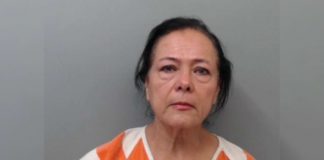Sounder, Fried Green Tomatoes, Diary of a Mad Black Woman
Advertisements:
$10 Million
"The moment anyone tries to demean or degrade you in any way, you have to know how great you are. Nobody would bother to beat you down if you were not a threat." If ever a quote summarized the performer who spoke it, Cicely Tyson is the living embodiment of achievement. There's hardly an award in the film community that Tyson hasn't won, from Oscar, Tony and Emmy to BAFTA, Outer Critics, Drama Desk and even a Presidential Medal of Freedom in 2016 for her contributions to American culture. Cicely Tyson's achievements and accolades would take several pages to list in their entirety, and include multiple NAACP Image Awards, a 2018 induction into the American Theater Hall of Fame, honorary degrees from Columbia, Howard, and Morehouse, induction into the Black Filmmakers Hall of Fame, and a Crystal Award from Women in Film.
With a career spanning more than five decades, Tyson has put her mark on every era by being selective about the roles she takes. "I don't condemn anyone for making their choices. If someone chooses those roles, fine. But not for me. When someone stops me and says 'you're the reason I became an actress,' that lets me know I made the right decision." Whether you first saw her as Rebecca Morgan in Sounder (1972), Sipsey in Fried Green Tomatoes (1991) or as Myrtle in the films of Tyler Perry, she's made a lasting impression on audiences in every decade.
Humble Beginnings
Tyson was born December 19, 1924 in Harlem to Frederica and William Augustine Tyson, working class immigrants from Nevis, a town in the West Indies. Cicely was among the first generation of her family born in the United States, her father having arrived at Ellis Island only five years prior in August of 1919. While Sounder (1972) is considered to be her breakout film performance and the beginning of movie stardom, Tyson's career actually stretches back two decades prior, to sometime before 1951, when fate would have it that she would be discovered by a photographer for Ebony magazine, launching her into a career as a model and actress.
This was never really Tyson's life-plan, but a wild fluke that launched her on the road to fame "I didn't want to be an actress, I never thought of being an actress because, as children, there were three of us - I was the middle child - and we spent our time in church from Sunday morning to Saturday night."
Cicely Tyson had her first film role a few years later in Carib Gold (1956), but would generally stick to television roles over the next decade or so, making history as the first African-American lead on a TV series for East Side/West Side which ran from 1963-64.
Film, Stage, Celebrity and Stardom
"The choices of roles I made had to do with educating and entertaining. And as a result, I found myself working only every two or three years."
Cicely Tyson's filmography is relatively sparse in comparison to actresses of similar stature, with only one film role listed in the 1980s for the Richard Pryor film Bustin' Loose (1981) but that should stand as a testament to her integrity. Throughout Tyson's career it is difficult to find even one assignment that she took solely for the paycheck, and she has maintained a reputation for working only on projects that she believes in. "Unless a piece really said something, I had no interest in it. I have got to know that I have served some purpose here."
This approach to selecting work has resulted in a sporadic but deeply impressive, iconic resume. Nearly every character Tyson has portrayed, in television, film and stage, has been a landmark performance, from Martha Frazier on Guiding Light (1966) to her Emmy nominated turn as Carrie Grace Battle on Sweet Justice (1994-95) to Ondine Burdett in Law & Order (2009) and Fonsia Dorsey in the 2015 production of The Gin Game.
Although Tyson has maintained a consistent, if low-key, profile over the years, not generating much in the way of celebrity gossip, she was deeply involved with jazz legend Miles Davis. The two first dated in the 1960s, then later in the 1970s, eventually marrying on November 26, 1981. Notably, the marriage ceremonies were performed by Andrew Young, then mayor of Atlanta, Georgia. The marriage lasted until 1988, finalizing in '89. Cicely Tyson has generally remained private about the details of her relationship with Miles Davis, but when questioned regarding certain rumors, told an interviewer “I don’t really talk about it. No, I don’t. But I will say this, I cherish every single moment that I had with him.”
One of the ways in which Cicely Tyson has been immortalized is through the Cicely Tyson School of Performing and Fine Arts, a public middle/high school in East Orange, New Jersey, with an enrollment of seven hundred fifty students. The school features an incredible eight hundred seat theater, built to Broadway specifications. The Cicely Tyson School of Performing and Fine Arts appears to be well on its way to earning as many awards in its lifetime as Tyson herself has won, including listing in multiple lists of top schools state and nationwide.
In a career bursting with achievements, Cicely Tyson continues to pursue ambitious, challenging roles in television, film and theater, having recently signed with Creative Artists Agency, and featuring in the ongoing series How to Get Away With Murder (2015-present) as recurring character Ophelia Harkness. It's not every day that you can say this of an actress that has been working since 1950, but it appears that Tyson's best work is still ahead of her. "I think when you begin to think of yourself as having achieved something, then there's nothing left for you to work towards. I want to believe that there is a mountain so high that I will spend my entire life striving to reach the top of it."
->





